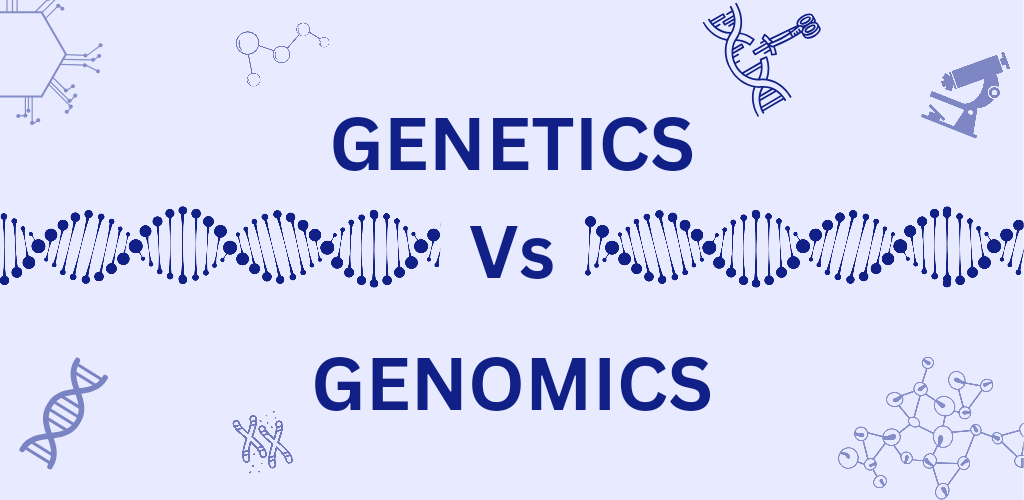Genetic Testing for Mental Health: Can Your DNA Influence Mood Disorders?
Genetic testing for mental health has emerged as a promising frontier in understanding and managing mood disorders, such as depression and anxiety. The interplay between genetics and environmental factors significantly influences the risk of developing these conditions. Recent research highlights the potential of personalized psychiatry, where DNA insights can guide treatment strategies, particularly in pharmacogenomics. This blog explores the intricate relationship between genetics and mood disorders, emphasizing the role of genetic testing in enhancing mental health outcomes.
The Genetics of Mood Disorders
Mood disorders, including major depression and bipolar disorder, exhibit a heritability rate of approximately 50%. This statistic underscores the substantial genetic contribution to these conditions, although environmental factors also play a critical role in their manifestation. [1]
- Heritability Insights:
- Studies suggest that bipolar disorder has high heritability with estimates varying, some showing up to89%.
- Family studies indicate that individuals with a family history of mood disorders are at a higher risk of developing similar conditions. [1]
- Key Genetic Factors:
- Research has identified specific gene variants associated with neuroplasticity and inflammation, which are crucial in the pathophysiology of mood disorders. [2]
- Ongoing studies are exploring candidate genes that may influence mood regulation and response to treatment.
Pharmacogenomics for Mental Health
Pharmacogenomics, the study of how genes affect a person’s response to drugs, is revolutionizing treatment approaches for mood disorders.
- Personalized Treatment:
- Genetic testing can identify variations that influence medication efficacy and tolerability, potentially reducing the trial-and-error approach in prescribing antidepressants. [3]
- Clinical Applications:
- Some pharmacogenomic tests are already available, allowing clinicians to make informed decisions about medication selection based on a patient’s genetic profile. [2]
Polygenic Risk Scores: A New Era in Genetic Risk Assessment
Building on the insights from GWAS, researchers have developed polygenic risk scores (PRS). These scores estimate an individual’s genetic risk for developing a mood disorder by aggregating the effects of many genetic variants across the genome. PRS have shown promise in predicting who might be more susceptible to mood disorders, potentially allowing for early intervention and personalized treatment strategies. [4]
Neurogenetics and Future Directions
The field of neurogenetics is rapidly evolving, offering new avenues for understanding mood disorders.
- Research Advancements:
- Large-scale genomic studies are underway, aiming to uncover the complex genetic architecture of mood disorders. [5]
- Collaborative efforts between geneticists and psychiatrists are essential to translate findings into clinical practice.
Conclusion
Genetic testing for mental health offers exciting possibilities for understanding and treating mood disorders. However, it is essential to recognize the multifactorial nature of these conditions. The integration of genetic insights into clinical practice can enhance personalized psychiatry, but ongoing research and validation are necessary to ensure the efficacy and reliability of these approaches. As the field progresses, the potential for improved mental health outcomes through genetic testing continues to grow, promising a future where treatments are more effective and tailored to individual needs.
References
- Juli, G., Juli, R., Juli, M. R., & Juli, L. (2022). Genetics As a Key to Understand Mood Disorders. Psychiatria Danubina, 34(Suppl 8), 135–139.
- Serretti, A. (2017). Genetics and pharmacogenetics of mood disorders. Psychiatria Polska, 51(2), 197-203. https://doi.org/10.12740/PP/68914
- van Schaik, R. H. N., Müller, D. J., Serretti, A., & Ingelman-Sundberg, M. (2020). Pharmacogenetics in Psychiatry: An Update on Clinical Usability. Frontiers in pharmacology, 11, 575540. https://doi.org/10.3389/fphar.2020.575540
- Bonacina, G., Carollo, A., & Esposito, G. (2023). The Genetic Side of the Mood: A Scientometric Review of the Genetic Basis of Mood Disorders. Genes, 14(2), 352. https://doi.org/10.3390/genes14020352
- Thompson, P.M., Jahanshad, N., Ching, C.R.K. et al. ENIGMA and global neuroscience: A decade of large-scale studies of the brain in health and disease across more than 40 countries. Transl Psychiatry 10, 100 (2020). https://doi.org/10.1038/s41398-020-0705-1




